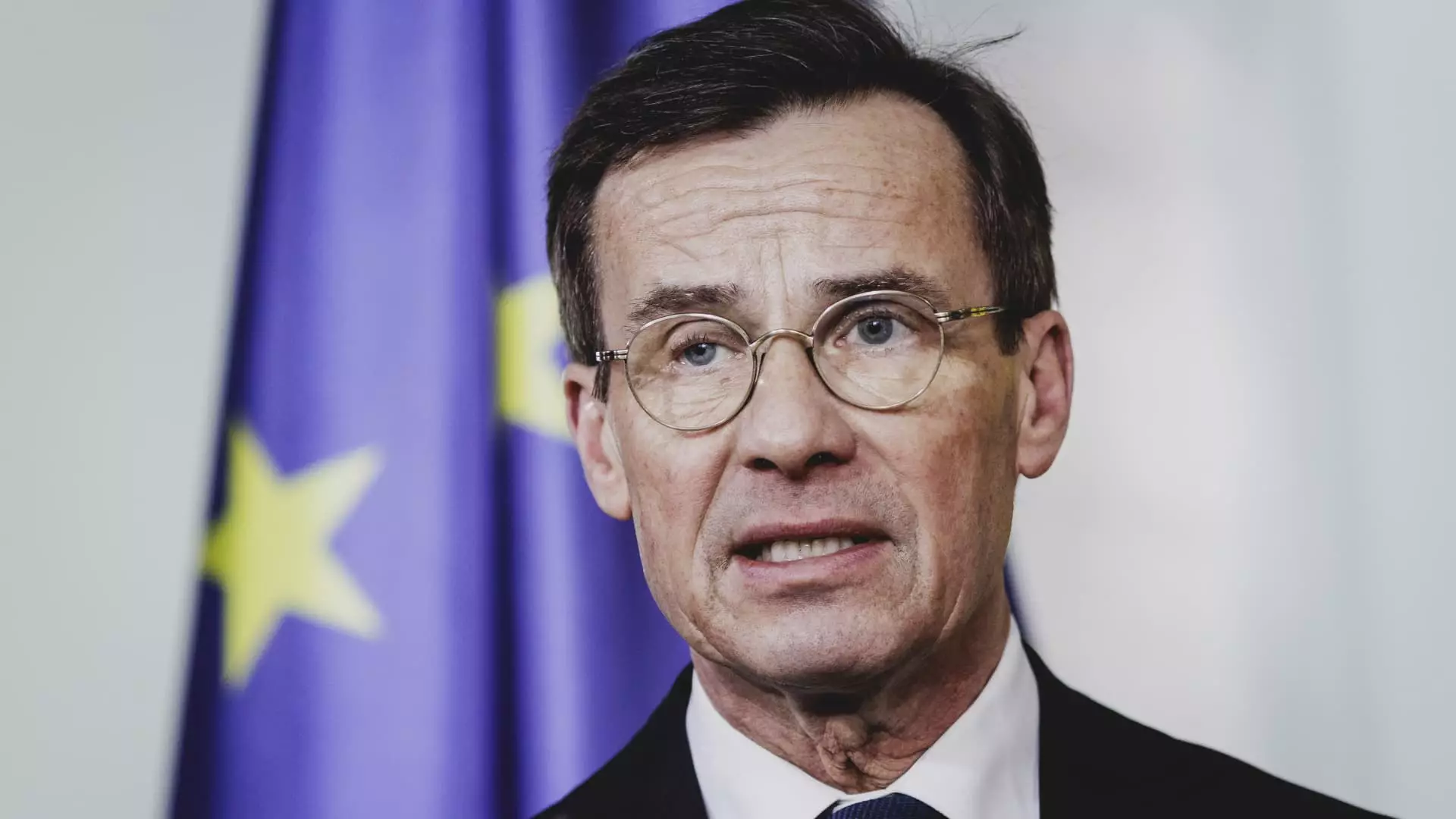In the ongoing discourse surrounding artificial intelligence (AI), European nations find themselves at a crossroads. Recent statements from Swedish Prime Minister Ulf Kristersson have sparked a debate about the regulatory climate in Europe, as leaders voice concerns over the continent’s potential stagnation in the global tech landscape. With stringent rules governing AI now in effect, the tension between innovation and regulation highlights a critical juncture for European economies striving to maintain competitiveness in a rapidly evolving technological world.
The Call for Regulatory Revision
At a recent tech conference in Stockholm, Kristersson warned that Europe risks becoming akin to a “museum” if it does not adapt its approach to AI technology. He asserted that the American and Chinese economies have exhibited significantly stronger growth than Europe’s, urging for a shift in strategy to avoid obsolescence. This sentiment resonates with multiple European leaders who are increasingly advocating for a regulatory environment attuned to fostering innovation, rather than stifling it.
French President Emmanuel Macron, during the Paris AI Action Summit, pledged an ambitious investment package of 109 billion euros to bolster AI development, a commitment supported by both international and domestic funds. This investment underscores a growing recognition among European leaders of the necessity to close the gap between the continent and faster-growing competitors. However, the challenge lies in creating an ecosystem that encourages investment without compromising safety and ethics in AI deployment.
The discourse surrounding Europe’s regulatory stance is mirrored by remarks from U.S. officials, notably Vice President JD Vance, who criticized the continent for prioritizing regulation over growth. The U.S. claims to be a pioneer in AI technology and encourages its European allies to foster environments conducive to innovation. Vance’s remarks illuminate a broader frustration within the tech community regarding Europe’s regulatory framework, especially following the implementation of the EU’s landmark AI Act, which some industry leaders consider overly restrictive.
The challenge, therefore, is not merely about enhancing investment but also recalibrating regulatory mechanisms to create a harmonious balance. Businesses in Europe have reportedly faced hurdles owing to uncertainties in legislative frameworks, leading many to consider relocating to more business-friendly environments, such as the U.S. This exodus is highlighted by Kristersson’s comments regarding the struggles faced by firms attempting to leverage the latest technology amid convoluted regulations.
To chart a successful course, European leaders must reflect on their regulatory philosophy regarding AI. While safeguarding public interests and addressing ethical issues remain paramount, rigidity in regulations can inadvertently hinder innovation and economic growth. A progressive regulatory framework that enhances access to capital and fosters talent could reinvigorate the European AI sector. Kristersson’s assertion that less regulation is necessary for businesses to thrive could serve as a unifying theme for policy discussions going forward.
Moreover, fostering collaboration between governments, industry stakeholders, and researchers can facilitate the development of shared standards and norms that ensure public safety while simultaneously encouraging innovation. By embracing a flexible approach to AI regulation, Europe can position itself as a leader rather than a reluctant participant in the global tech race.
As the landscape of AI continues to evolve, Europe stands at a critical juncture where decisive action is needed. The voices of leaders like Kristersson and Macron signify a growing recognition of the need for transformation in regulatory approaches. By embracing change and fostering an environment that nurtures innovation, Europe has the potential not only to enhance its economic profile but also to reclaim its position as a global powerhouse in technology. By adjusting its trajectory, Europe can transform the narrative from one of potential obsolescence to one of vibrant innovation and forward-looking advancement.
In an era where technological prowess defines geopolitical influence, the choices made by European leaders today will undoubtedly shape the region’s economic fortunes and its role in the global AI revolution.


Leave a Reply